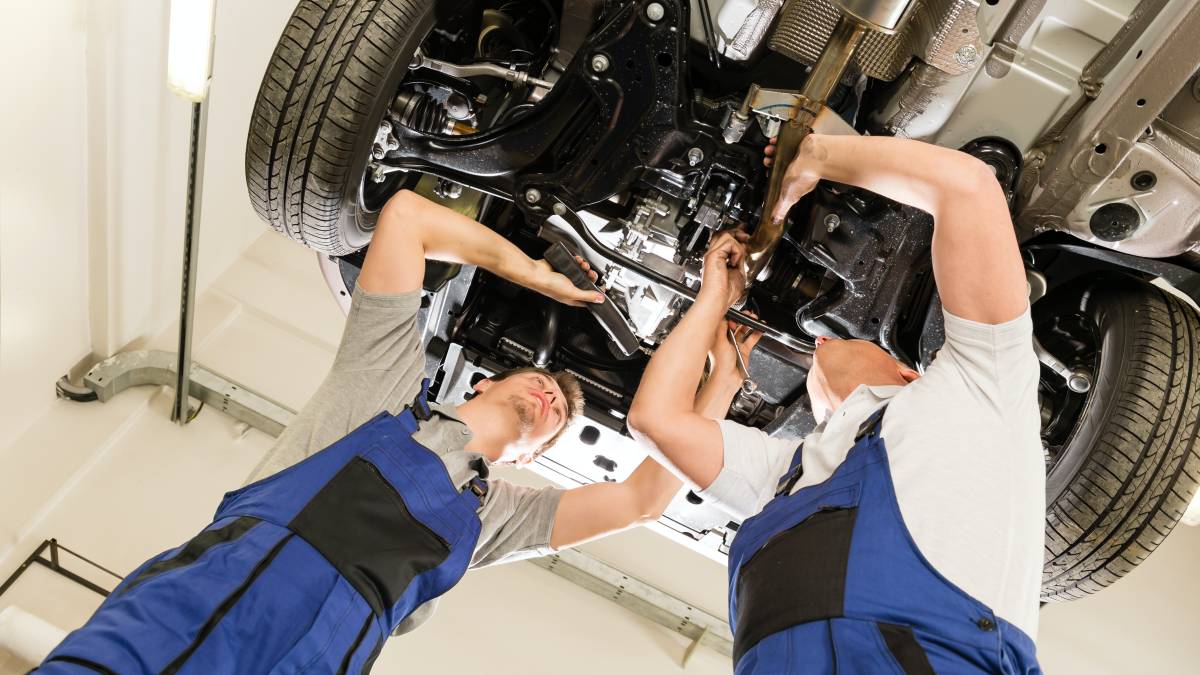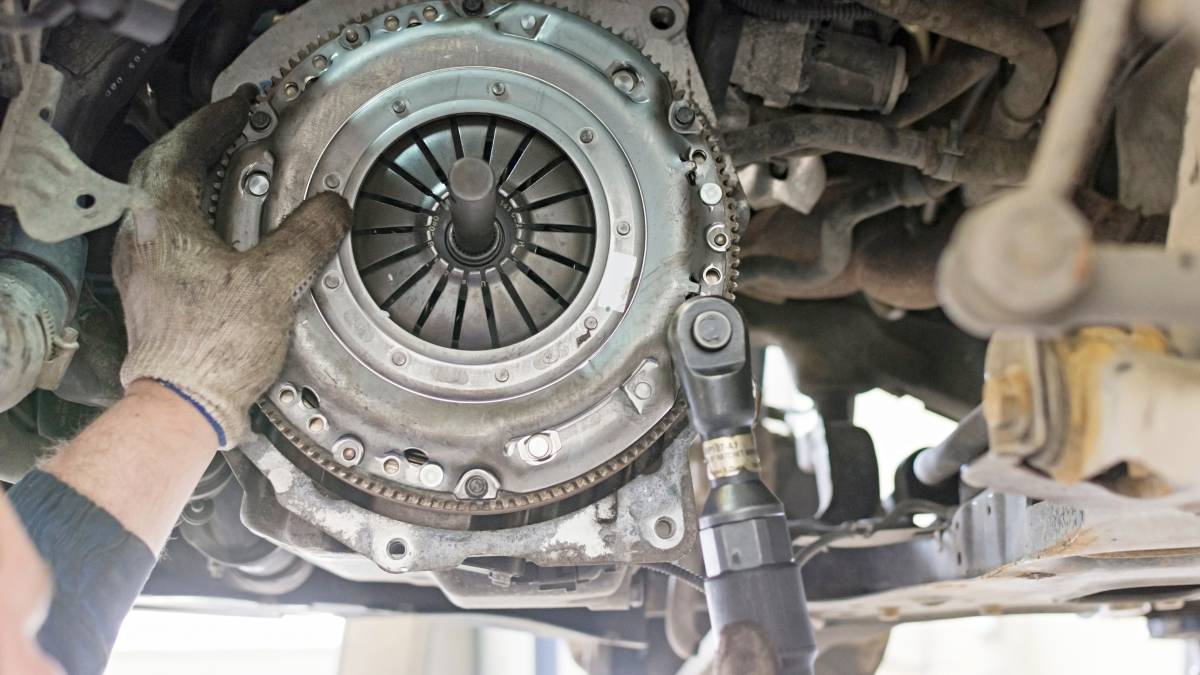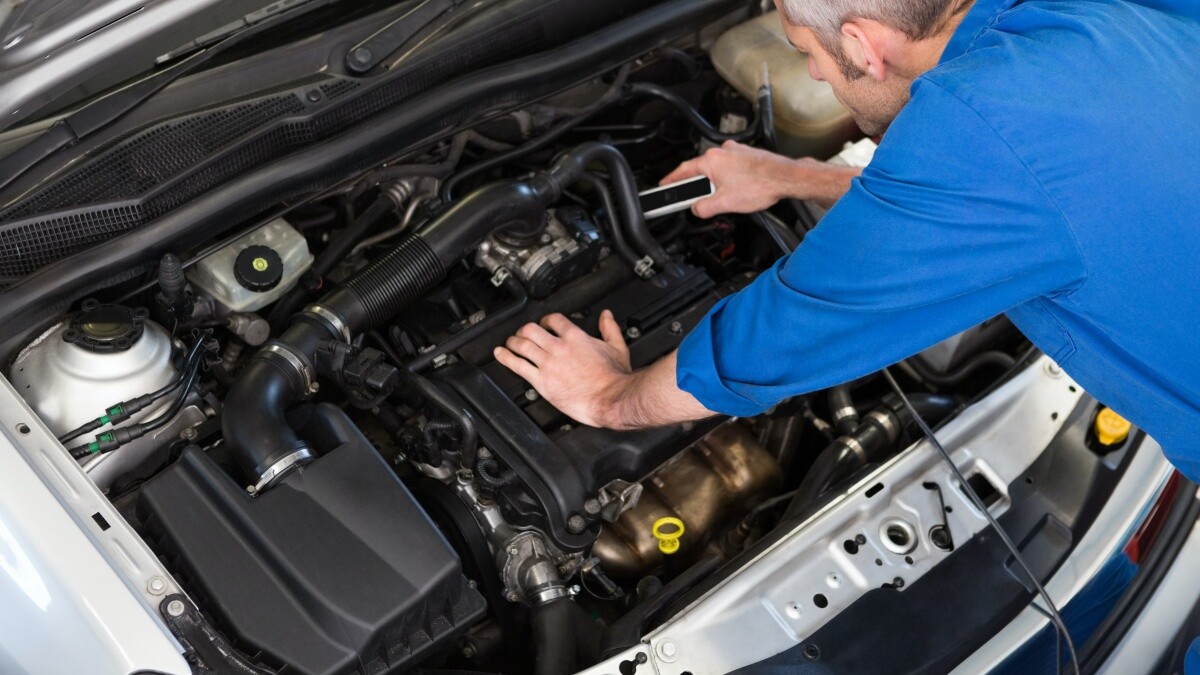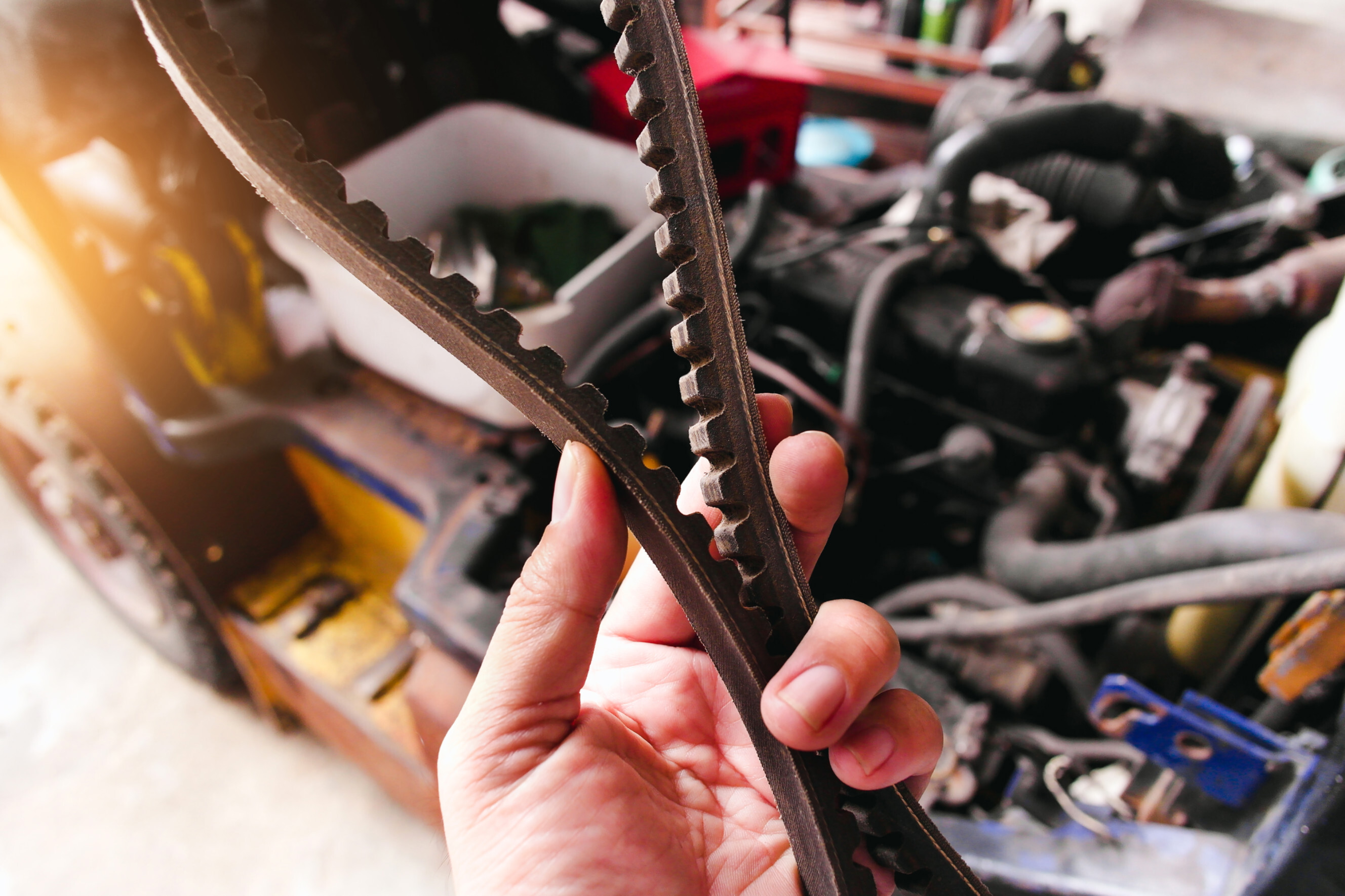- Home/
- Comparisons/
- Mechanic/
- Automotive Mechanic vs Technician

Automotive mechanic vs technician: Is there a difference?
Comparing automotive mechanics and technicians in terms of qualifications, skills, services, and more.
Hire expert mechanicsLast Updated on
Key Facts
- An automotive mechanic works on the mechanical aspects of car repair and maintenance, such as break and engine troubles.
- An automotive technician resolves more high-tech issues such as problems in your car’s electronic computer systems.
Hiring an automotive mechanic vs technician for your car troubles can be confusing, and it becomes a struggle when you just want your vehicle back on the road as fast as possible.
Let’s make this decision-making process as quick and painless as possible by breaking down the key differences between an automotive technician vs automotive mechanic. Make an informed choice that saves you time, money, and hassle.
What does a mechanic do?
 Male mechanic at work. (Source: iStock)
Male mechanic at work. (Source: iStock)
An automotive mechanic is your go-to professional for hands-on car repairs and maintenance. Whether it’s fixing a worn-out brake pad, changing a faulty timing belt, or sorting out engine troubles, mechanics can resolve the mechanical issues that keep your vehicle from running smoothly. They can handle routine services such as oil and filter changes and tyre rotations. They’re also familiar with more complex repairs that require detailed knowledge of your car's inner workings.
What does an automotive technician do?
 Male automotive mechanic repairing a car. (Source: iStock)
Male automotive mechanic repairing a car. (Source: iStock)
An automotive technician specialises in diagnosing and resolving the more high-tech issues in modern vehicles. With cars becoming increasingly computerised, technicians use advanced tools and software to identify problems with your car’s electronic systems. While they may handle some mechanical repairs, their focus is on troubleshooting and fine-tuning the technological side of things, so that your car functions as it should.
Automotive technician vs automotive mechanic: Who should you hire for your car service?
More than 40% of car services provided in auto shops respond to accident-related repairs instead of routine maintenance tasks. Whatever your needs are, we’re here to help you choose between an automotive technician vs mechanic. We’ll look into their differences so you can make the best decision for your car and budget.
In terms of qualifications
 Mechanic fixing a car from underneath. (Source: iStock)
Mechanic fixing a car from underneath. (Source: iStock)
Both automotive technicians and mechanics undergo formal training, but their focus can vary. Mechanics gain their skills through apprenticeships or vocational courses that emphasise hands-on experience with vehicle repairs and maintenance. They train to understand the mechanics of cars so they can fix mechanical issues like engine problems, suspension faults, or brake failures.
On the other hand, automotive technicians usually have more specialised training in the automotive industry. Many hold certificates or diplomas in automotive technology, with courses covering areas like computer diagnostics, electrical systems, and software-based repairs. As vehicles become more reliant on technology, technicians are often expected to stay up-to-date with the latest tools and systems through certifications on advanced automotive electronics.
In terms of skill sets
Mechanics are highly skilled in hands-on automotive repairs and maintenance, with expertise in mechanical systems like engines, transmissions, brakes, and suspension. They excel in troubleshooting mechanical faults, using physical tools to repair or replace parts. Their strength lies in their practical experience with the car’s mechanical components.
In contrast, automotive technicians have a more technical skill set focused on the electronic and computerised systems found in modern vehicles. They’re proficient in using diagnostic tools to read error codes, analyse data from sensors, and troubleshoot issues with advanced systems like the ECU (engine control unit) or navigation systems.
In terms of services offered
 Mechanic checking a car engine. (Source: iStock)
Mechanic checking a car engine. (Source: iStock)
Automotive mechanics offer routine maintenance tasks such as oil changes, brake replacements, and tyre rotations, as well as more complex repairs like engine rebuilds, transmission fixes, and suspension work.
On the other hand, auto technicians handle issues such as troubleshooting warning lights, resetting electronic control systems, repairing faulty sensors, and resolving software glitches. They also assure that features like driver-assist systems, infotainment, and emissions control are all functioning properly.
In terms of turnaround time
The turnaround time for routine vehicle maintenance tasks performed by automotive mechanics pass by fairly quickly, often within a few hours. More complex repairs take longer though, due to the extensive labour involved and the time it takes to acquire certain car parts.
Automotive technicians require even more time–usually more than a day–for their services, especially when diagnosing electronic issues. While master automotive technicians might take longer to identify a problem, their expertise in troubleshooting complex systems can ultimately save time in the long run by ensuring accurate repairs.
In terms of service cost
 Female mechanic inspecting an engine. (Source: iStock)
Female mechanic inspecting an engine. (Source: iStock)
Automotive mechanics cost less since they have lower hourly rates for basic maintenance and repairs. This budget-friendliness makes them a popular choice for regular vehicle upkeep.
Auto service technicians may charge higher rates due to their specialisation and the advanced technology they work with. Their services often involve diagnostic tools and sophisticated electronic repairs, which can increase the overall cost.
Routine repairs with a car mechanic costs around £50 to £300. Meanwhile, electronic or software fixes with a car technician usually cost around £150 and £500.
In terms of warranties and guarantees
Mobile mechanics typically offer warranties on parts and labour for a set period, reflecting their confidence in the mechanical repairs performed. This means that if an issue arises shortly after the service, you may be covered for help with vehicle repairs at no additional cost, giving you peace of mind.
Automotive technicians may also provide warranties that cover both the parts and the advanced technical work they perform. Given the complexity of the electronic systems they address, technicians often guarantee their services for a longer duration, particularly for high-tech repairs.
Need a car tune-up? Find a trusted mechanic or technician on Airtasker
If your car is due for a repair or maintenance check, don’t hesitate to reach out for help from professionals. Whether you decide to go with an automotive mechanic for hands-on repairs or an automotive technician for those high-tech diagnostics, finding the right professional is just a post away.
Check out trusted mechanics and technicians in your area with Airtasker. They’ll be ready to provide the quality service you need to get your vehicle back in top shape. Post your task on Airtasker for your car repair or maintenance, and enjoy peace of mind while cruising down the road.
Side-by-side comparison
| Automotive Mechanic |
Automotive Technician |
|
|---|---|---|
| Qualifications |
Apprenticeships or vocational courses with hands-on training for repair and maintenance |
Specialised training and certifications for advanced electronic and technological repairs |
| Skill Sets |
Mechanical systems for engines, transmissions, brakes, and suspension |
Computerised systems for sensor, ECU, or navigation software errors |
| Services Offered | Routine maintenance tasks and other complex mechanical repairs | Resolving electronic system issues and software glitches |
| Turnaround Time |
Within a few hours |
More than a day |
| Service Cost | £50 to £300 for basic maintenance and repairs |
£150 and £500 for specialised and advanced work |
| Warranty and Guarantees |
Offers warranties for car parts and labour |
Provides warranties for car parts and technical work |
FAQs on automotive mechanics and technicians
A maintenance mechanic deals directly with mechanical systems like engines, machinery, and equipment. On the other hand, a maintenance technician often has a broader role that includes troubleshooting electronic systems, often using advanced diagnostic tools.
Changing the engine oil and oil filter is the most important maintenance task for your engine. This ensures proper lubrication, reduces friction, and prevents overheating. Regular checks on coolant levels, air filters, and spark plugs can also help extend your engine’s lifespan and improve its performance.
On average, car maintenance costs in the UK can range from £50 to £100 per month. This can vary based on factors like the make and model of the car, the age of the vehicle, and the type of maintenance required.
Find mechanic, fast
Post a task
Related articles
Related price pages








